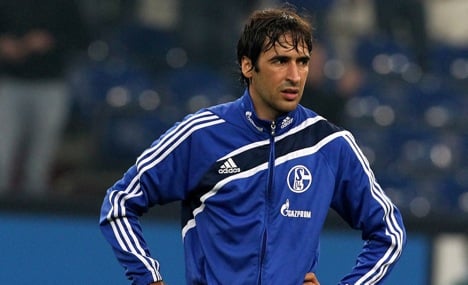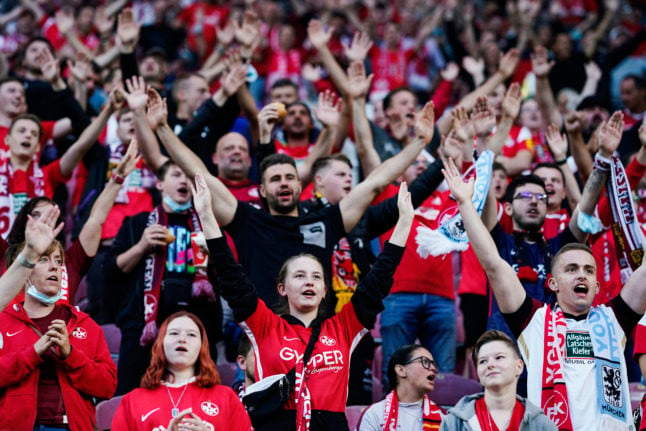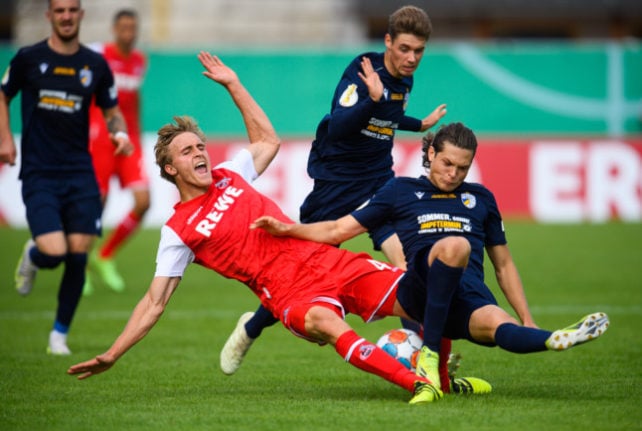Werder Bremen will play Dutch side FC Twente in Group A in the Champions League at home. But they were beaten 3-2 at home by Nuremberg in the German league.
Schalke will play at Hapoel Tel Aviv in Group B, but they slumped to a 1-0 defeat at home to Leverkusen – the Royal Blues’ sixth defeat in 10 games.
Bremen need to beat the Dutch titleholders at home on Tuesday at the Weserstadion to keep their dreams of the Round of 16 alive and close the gap with Group A leaders and holders Inter Milan and second-placed Spurs.
But Bremen squandered a possible chance to get to third place in the German league and slumped to their fourth defeat of the season.
“After the early opening goal, we suddenly stopped being as threatening and dangerous,” fumed Bremen coach Thomas Schaaf. “In the second half, we just made it too easy for our opponents. We lost too much focus and we have to work much, much harder.”
Bremen took an early lead when Hugo Almeida was left unmarked at the far post and Germany winger Marko Marin found him with an accurate cross and the Portugal striker headed home after just five minutes.
But Nuremberg fought back as midfielder Ilkay Guendogan scored just before the half-time break, then fellow-midfielder Mehmet Ekici put the guests ahead on 47 minutes.
Nuremberg had numerous chances to extend their lead and scored their third goal when Guendogan scored his third goal in two games, drilling in his shot on 73 minutes to compound Bremen’s misery.
Werder Bremen’s Claudio Pizarro scored a consolation goal in the 92nd minute, but it failed to save the club’s embarrassment.
Later on Saturday evening, Schalke also prepared for their trip to Israel by slumping to their sixth defeat as they lost 1-0 at home to Leverkusen.
The defeat keeps them second-from-bottom in the table while Leverkusen go third after midfielder Sidney Sam hit the winner in the 65th-minute. “This has been a difficult start,” said Schalke’s Spanish striker Raul. “We are lacking a good performance in the Bundesliga. We must continue to fight and work. With passion, we will get out of this again.”
The key clash of the weekend is on Sunday when leaders Mainz are at home to second-placed Dortmund, but Eintracht Frankfurt went fourth after their 3-1 win at St Pauli.
Veteran Greece striker Theofanis Gekas scored twice to take him onto nine goals and the league’s top scorer after ten games.
Wolfsburg striker Edin Dzeko also netted twice in his side’s 2-0 win over Stuttgart while Hamburg were upset 3-2 at Cologne as Slovenian striker Milivoje Novakovic scored a hat-trick.
Defending German champions Bayern Munich scored a morale-boosting 4-2 win over Freiburg on Friday night after a sizzling second half brought three goals to move the Bavarians up to seventh spot.
Though Bayern have three wins from three in the Champions League, this was only Bayern’s fourth win in the Bundesliga this season and they were seventh in the league after Saturday’s games.
Defender Martin Demichelis scored the only goal of the first half before Mario Gomez on the hour, Anatoliy Timoshchuk and then Toni Kroos completed the rout.
AFP/bk




 Please whitelist us to continue reading.
Please whitelist us to continue reading.
Member comments